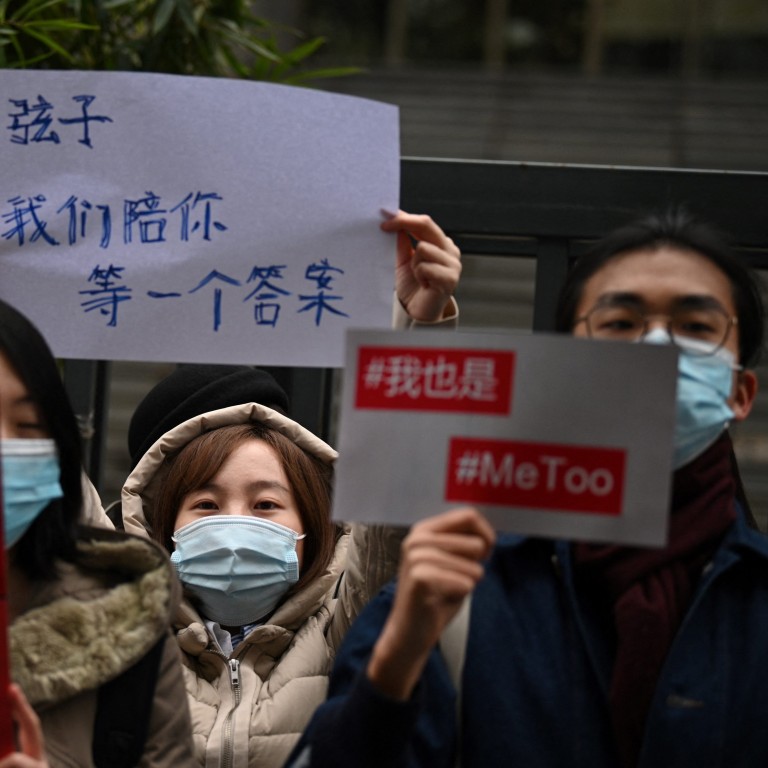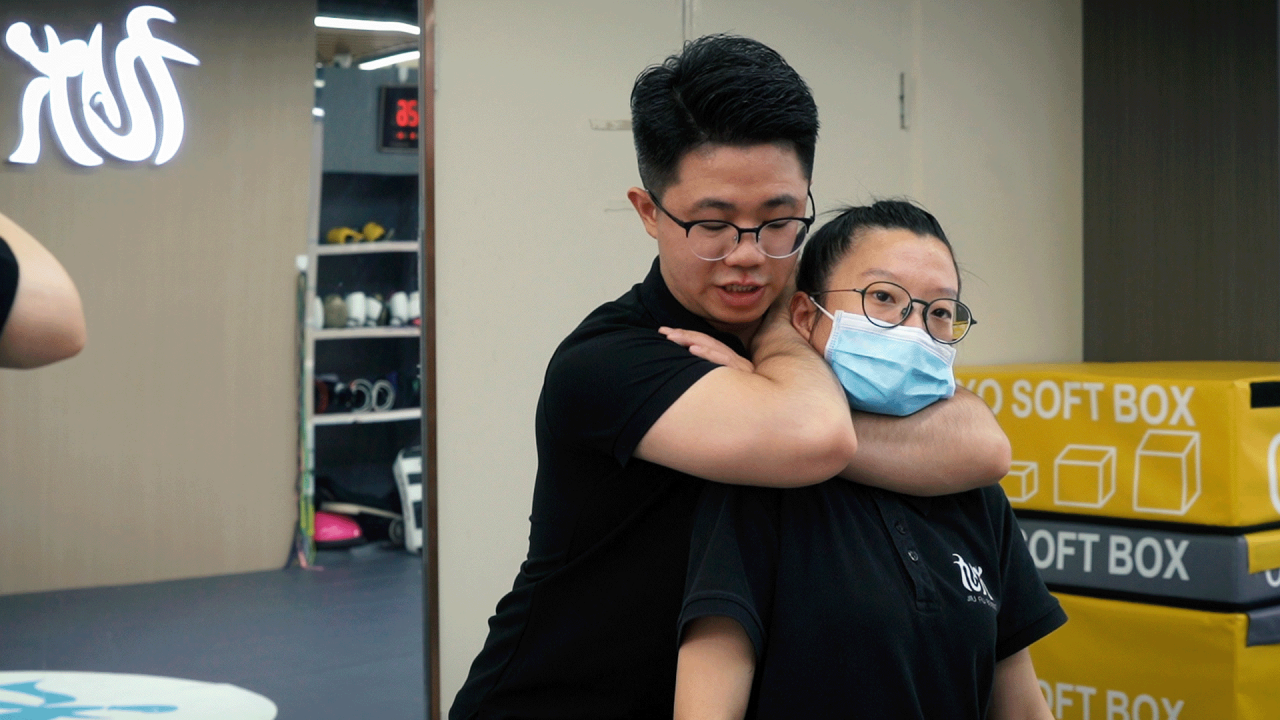Advertisement
Advertisement

Opinion
Lunar
by Salomé Grouard
Lunar
by Salomé Grouard
Five years on, has #MeToo hit a wall – or is deeper change possible?
- While the movement has yet to produce the systemic change needed to protect survivors of sexual abuse, it has pushed boundaries in some societies
- Moreover, it is heartening that women are still speaking out and sparking conversations
In 2017, after the publication of an article in The New York Times that exposed Hollywood producer Harvey Weinstein as a serial sexual harasser and abuser, the #MeToo movement went viral on social media and entered the history books. The Me Too campaign, originally created by activist Tarana Burke, allowed millions of survivors to describe their experiences of being harassed, groped, sexually assaulted and threatened. Many found an understanding community which helped their healing and empowerment.
Five years on, however, the feeling is that the movement has hit a wall. It became clear during the social media circus surrounding the defamation trial between actor Johnny Depp and actress Amber Heard that the movement had failed to induce the systemic change necessary to protect survivors of sexual abuse and assault, and that a backlash was coming.
China is just one of many countries facing this very paradox: while more women have been speaking out about assault in recent years, the conditions for them to do so seem to have worsened.
Journalist Huang Xueqin, a leading figure in the country’s #MeToo movement, has been detained since 2021 and charged with trying to subvert state power. Although the National People’s Congress enacted legislation defining sexual harassment as a legal offence, a Chinese court in August rejected the appeal of screenwriter Zhou Xiaoxuan in her landmark sexual harassment case against popular state television host Zhu Jun, citing insufficient evidence.
After tennis star Peng Shuai alleged in a Weibo post in November last year that a former senior politician had sexually assaulted her, the post was quickly censored and Peng disappeared from public sight for weeks, triggering international concern. She later retracted her accusation in interviews.
Most of these high-profile cases did not reach the resolutions many had expected. But as Leta Hong Fincher, author of Betraying Big Brother: The Feminist Awakening in China, argues, the #MeToo movement has been pushing the boundaries of what is permitted by the Chinese government.
On the one hand, there has been legal progress, such as proposals to amend China’s Law on the Protection of Women’s Rights and Interests and to create a sex offender registry. On the other hand, information is being censored so as not to “fuel friction between men and women”, like in the case of the brutal group attack on women in the northern city of Tangshan. This highlights growing anxiety over women’s rights activism.
In India, the #MeToo movement took off after a Bollywood actress accused a prominent actor of sexually harassing her in 2018. That year, Thomson Reuters Foundation ranked India as the most dangerous country for women.
In response, apps like SafeCity, My Safetipin and Himmat have been developed to make it easier for women to report harassment and get help in public spaces. In the state of Kerala, a four-day Girls Night Out campaign was recently organised to allow women to experience nightlife safely.
As important as these community efforts are, a political analyst has argued that change needs to begin in the household. But this can be particularly difficult in societies where the #MeToo movement has been deeply polarising.
In South Korea, an activist has said her relationship with her family suffered after she voiced her thoughts on gender equality. Many, fearing backlash, cover their faces when taking to the streets demanding justice on violence and sexual harassment. The election of “antifeminist” Yoon Suk-yeol as president has both worried and galvanised women’s rights groups.
Today, the #MeToo movement continues to resonate in many communities, sometimes sparking new debates. Recently, actress Constance Wu wrote of how she had not recognised she had been raped because of the absence of violence during that encounter. She also sparked a conversation within the Asian-American and Pacific Islander community when she revealed that she shared a separate experience of workplace sexual harassment with an Asian-American advocate, but he betrayed her trust when he publicly praised her alleged abuser. She was both lauded and criticised for highlighting how the Asian-American entertainment community was afraid, in the words of journalist Diep Tran, “to have conversations beyond positive representation, and … to critique each other”.
As people continue to speak out, the #MeToo movement has the potential to reinvent itself and bring about much-needed structural change.
Salomé Grouard is production editor, social media, at the Post and a member of Lunar, an initiative that highlights key issues related to women and gender equality in Asia

1


